
[ad_1]
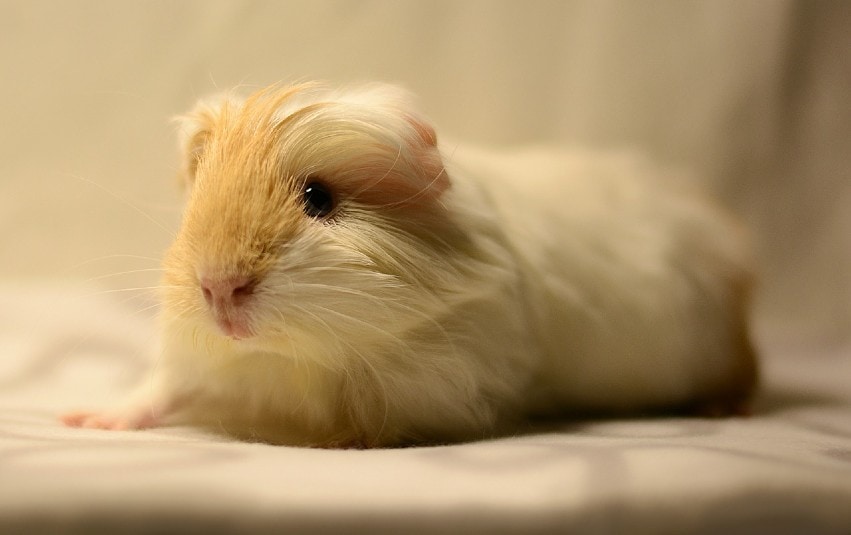
Purring in guinea pigs is a vague descriptor for the many sounds they make, but that doesn’t mean they don’t do it. While purring conjures images of contented cats stretched out in the sun, guinea pigs make several vocalizations, which can be categorized into purrs, chirps, and grunts, with purrs having a wider range of noises than the others.
Read on for the five likely reasons your guinea pig might purr.
The 5 Reasons Why Guinea Pigs Purr
1. Contentment – Deep, relaxed purr
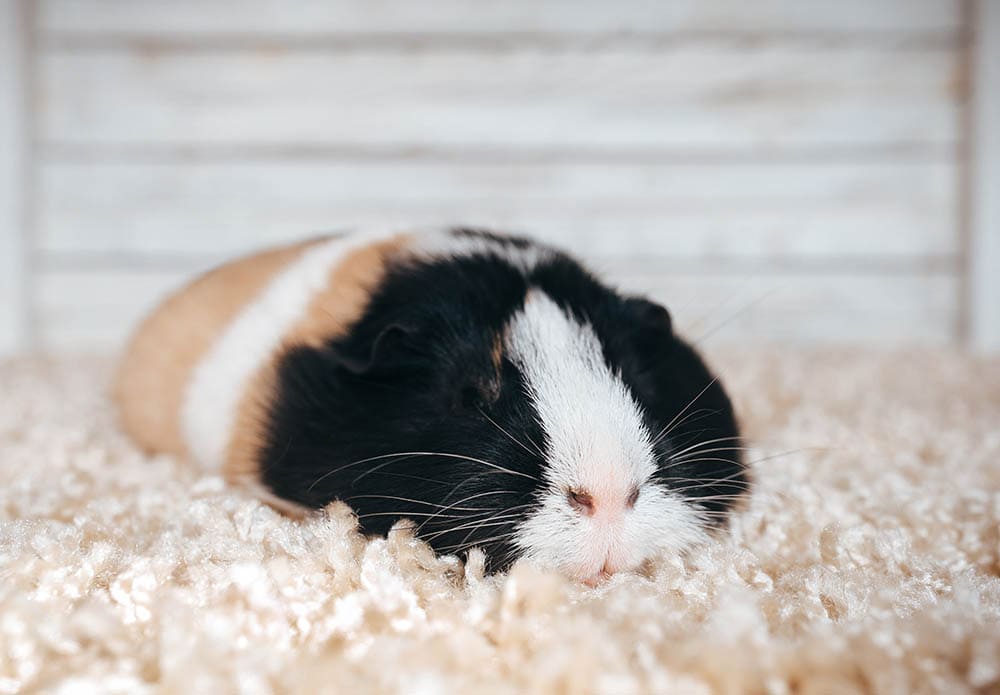
This bubbling purr is a lovely sound to hear. It is often heard in guinea pigs that are lying flat on their bellies in a relaxed manner, usually when being petted by someone they trust.
2. Annoyance or stress – Higher pitch purr
A higher pitched purr, often rising at the end, means your guinea pig is annoyed or stressed by something. It’s a louder purr than the contented purr and is accompanied by a tense posture, wide eyes, or teeth baring. The purr might be in response to a stressful environment such as a busy room or an unwanted interaction from people or other guinea pigs.
3. Fear – Short, sharp purr
This purr is startled, short, and often accompanied by higher-pitched squeaks. Fear is never a nice thing to hear from your pet guinea pig, but the purr is unmistakable with its short sharp bursts and volume. It is often accompanied by a tense posture, freezing in place, fidgeting, and raised fur.
4. Dominance – Rumbling purr
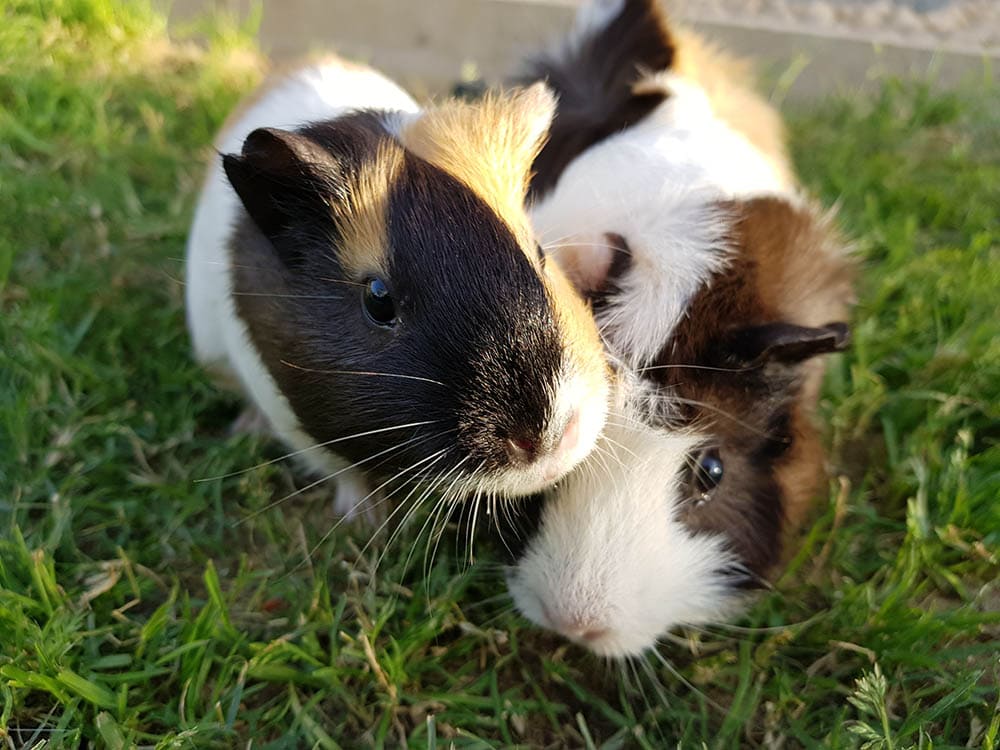
The rumbling purr is used in two areas of guinea pig communication: dominance and mating. While these areas might seem unconnected, the similarity of the purr may not be a coincidence. The very low-pitched purr is produced deep in the chest, with the guinea pig sometimes vibrating when they do so. Often seen more commonly in boars than sows (males than females), this purr is performed to show and assert dominance over the other members of the herd.
5. Courting – The “rumble strut” purr
This amorous purr is very similar to the dominance purr; it’s low and deep. However, the rumbling purr is also accompanied by a fascinating dance that gets your guinea pig moving: the rumble strut. The stepping motion is very recognizable and is used in tandem with the deep rumbling purr to signify to a potential mate that a guinea pig is ready to make babies.
What Other Noises Do Guinea Pigs Make?
Guinea pigs make a whole host of other noises. The most instantly recognizable is the “wheek.”
Wheeking
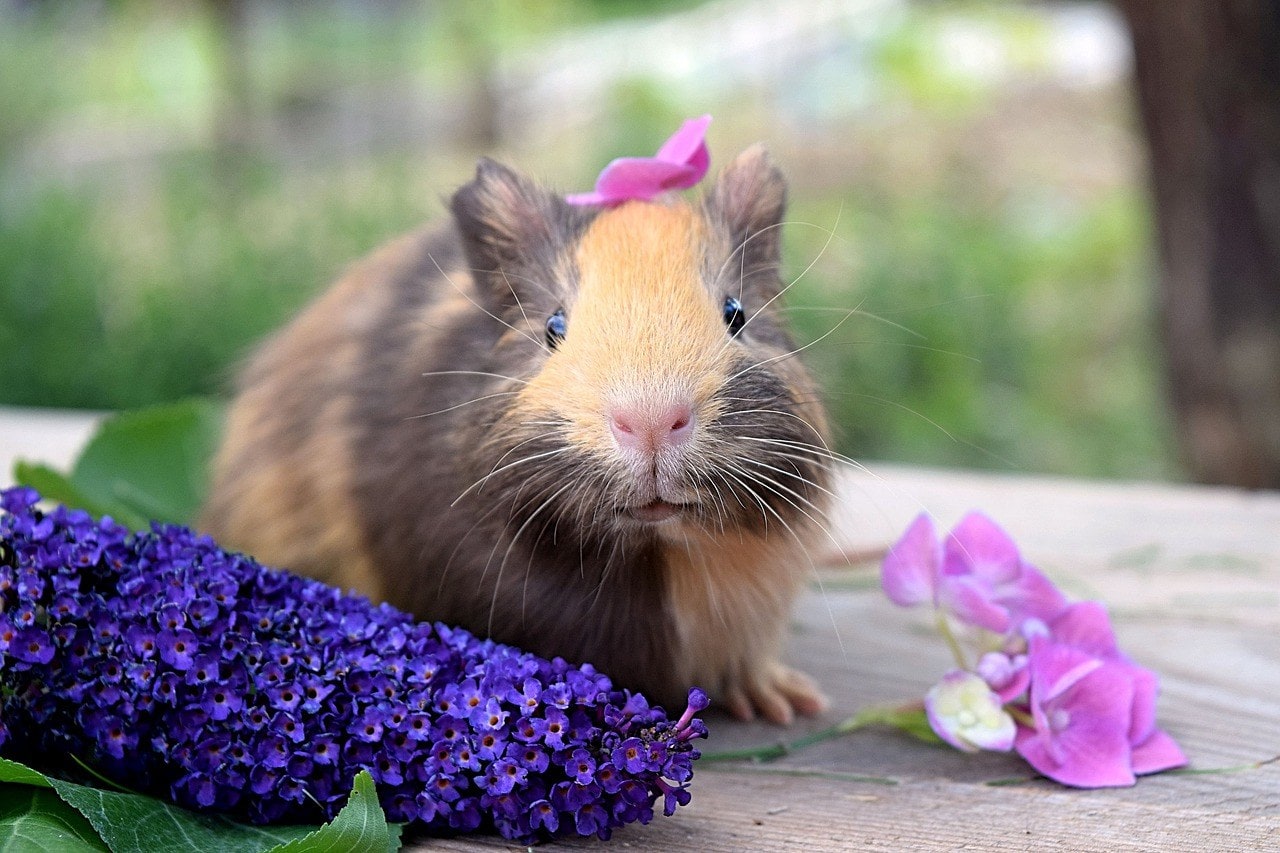
Wheeking is the long, low-to-high pitched squeaks guinea pigs make when they’re excited or pleased about something and is often accompanied by jumping up and down in place. They can barely contain their excitement!
Chirruping/ Chirping
This low, bird-like chirrup is uncommon in Guinea pigs but has been identified as a sound they may make when losing a mate. Another possible reason for a guinea pig chirping is discomfort.
Teeth Chattering or Hissing
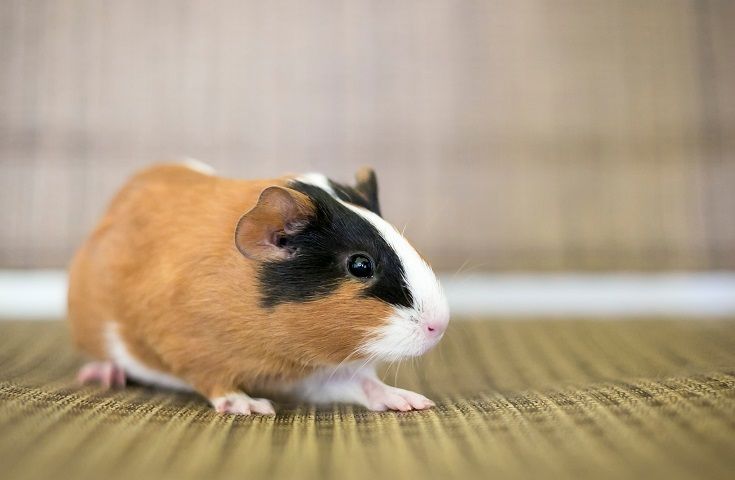
Teeth chattering and hissing are clear warning signs from a frustrated or angry guinea pig, which means, “please back off. This is a warning.” Often this is an early warning sign that a guinea pig is getting annoyed and may bite, but it can also be used towards other guinea pigs to show aggression.
Shrieking
A guinea pig that makes this noise is in pain or terrified and will only emit a loud shriek if something is very wrong. Don’t ignore the noise since it’s usually out of the ordinary for them and should always be investigated.
What Sounds Do Guinea Pigs Make When They’re Mad?
Guinea pigs, when mad, can make a range of different noises, the most common being teeth chattering, hissing, and high-pitched purring.
Body language in guinea pigs is always a good indicator of mood and whether they’re mad. Guinea pigs that are unhappy or angry will be stiff, have raised hackles, or will fidget around, often accompanied by “head throwing.” This, combined with the three sounds mentioned above, indicates that your guinea pig is upset and needs to be left alone to calm down.
What Sounds Do Guinea Pigs Like To Hear?
While guinea pigs are very social animals and should always be kept in groups of two or more, playing guinea pig noises to your little pigs may actually cause distress. Having an unidentified guinea pig making random noises at them could alarm them, so instead, try leaving on the radio or playing gentle music such as jazz for your furry friends. They are probably a lot more accustomed to the sounds of humans talking and their cage mates’ noises.
Conclusion
Guinea pigs may purr for a few reasons, at different lengths and pitches, and for different amounts of time. A quiet, low purr is often associated with a relaxed pig, whereas a short sharp burst of purring means agitation. Listening to your guinea pigs’ vocalizations and watching their body language can help you to determine if they’re happy, upset, or just content to be around you.
Featured Image Credit: popcornmarsvin, Pixabay
[ad_2]
Source link


